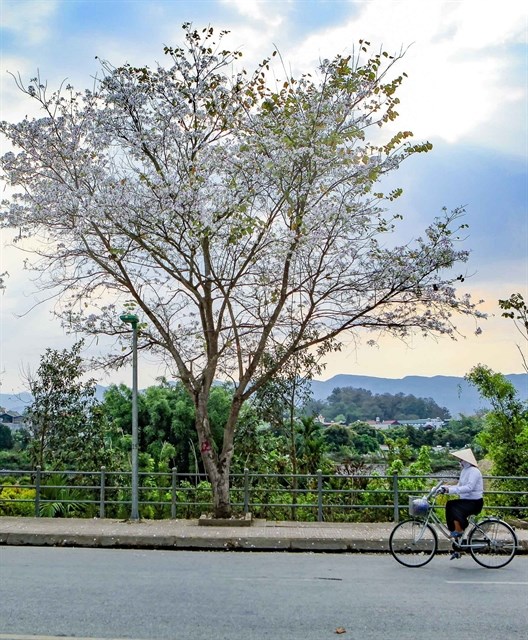



Three hundred orchid flower trees have been brought to Hanoi to be
part of the city's Orchid Tree Flower Festival. (Photo: VNA)
The museum is hosting the first Ban Flower Festival, which
runs until April 14 aiming to honour and preserve cultural heritage of ethnic
groups.
The festival also promotes tourism potential and strengthening contributing to
socio-economic development in the region.
"As soon as I know that the Ban Flower Festival is to be held in Hanoi, I feel
very happy and excited,” said Sam Thi Nguyet at the festival opening ceremony.
"When I come here, it is amazing to see ban flower which were brought to Hanoi
capital for the first time. It is a wonderful chance for the people including
Hanoians and other people living in Hanoi to better understand the beauty of
the mountainous culture. I will also get acquainted with Thai people from other
localities and I think that I will have more understanding about the culture of
my own people.”
Nguyet is from the Thai ethnic group in Quy Hop district in the central
province of Nghe An. She is among many young people at the first day of the
festival to enjoy ban flower.
Poet Duong Dinh Trong was also present at the festival very early. "I am very
happy to attend the festival featuring Thai culture,” Trong said.
"As a citizen of the capital, I hope there will be more festivals, not only of
the Thai people but also that other ethnic groups will be organised in Hanoi so
people can understand more about the culture of ethnic groups in Vietnam.”
Household daily objects of Thai ethnic group such as jar of wine, looms and
bamboo tubes to get water create a vivid space of the northwest culture to
impress the festival-goers.
About 200 booths are set to popular speciality and culinary of the northwest
region. The ban flower trees are being taken care of by experts to ensure they
stay fresh. Each tree has information attached to it to reveal their origins.
Ban Flower Festival, known as Xen Muong, is organised annually by the Thai
ethnic group in the northwest provinces in the second Lunar month to coincide
with ban flower bloom.
The festival shows the respect of the gods and the heroic people and it is also
an opportunity to pray for happiness and prosperousness.
The first Ban Flower Festival is held by Tay Bac Investment Promotion &
Trade Fair to raise fund for bridge building for children going to school and
clean water in the mountainous provinces.
The festival is running at the Hanoi Museum, Pham Hung Road, Nam Tu Liem
district.
Source: VNA